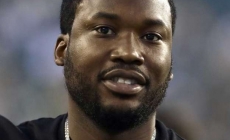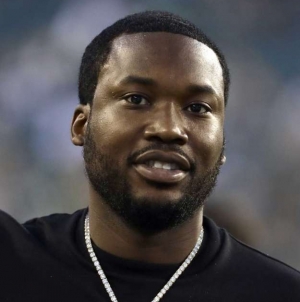-
Coming Straight From Austin Texas With New Single “Pretend” - January 9, 2021
-
Travis Scott Releases His First Single of 2019 [VIDEO] - October 4, 2019
-
Lil Kim Releasing First Album In 14 Years - October 4, 2019
-
Three Charged With Providing Mac Miller With Deadly Drugs - October 4, 2019
-
Lizzo Makes History With New Billboard Record - September 24, 2019
-
Rap-A-Lot Record’s J Prince Has A Lot To Say About 6ix9ine - September 24, 2019
-
Philly Approves Meek Mill Weekend - March 14, 2019
-
T.I.’s Sister, Precious Harris Had Died - February 22, 2019
-
Jussie Smollett Remove From Empire’s Final Episodes - February 22, 2019
-
Drake & Jennifer Lopez Have Been Spending Quite Some Time Together - December 21, 2016
INTERVIEW: Keepin’ It Real With Kemo The Blaxican
Published: Monday – July 12, 2010

GW: Tell me a little bit about your upcoming, August 17, album, The Upside of Struggle.
Kemo: With the exception of one beat from another camp called Rejected Rhythms, on a song called “1,700 Little Years,” everything is self-produced either by myself or someone from the camp. I don’t necessarily plan it to be that way. I just get on a roll and next thing I know it’s all my beats.
GW: Do you start with your beats, or do you write your verses and then put beats to them?
Kemo: It’s a little of both but in this case, I started off with beats. I’ve been producing tracks for projects and for myself before I got to writing. I had a nice pool of music to draw from. It was crucial for this project, I mean; I did this whole thing probably in about four months. It’s going close to three years since Not So Rich and Famous, my second solo release, and I been wanting to get something out. For whatever reason, life was just kinda doing its thing and I didn’t get crackin’ on a record. I put myself under the gun and said, “All right, you gonna drop a record?” It was a lot of very late nights. Part of it was having a good time.
GW: You call yourself a “Black and Brown brotha,” in your song, “Left Coast Latino.” Are you Black and Mexican?
Kemo: Exactly. My father’s Black and my mother’s Mexican. I refer to myself as a Blaxican. It’s a nice blend, a beautiful thing, so I definitely put it out there. There’s a lot of Latin that I bring out in my music. I grew up mostly on the Latin side of the fence. I’ve always been an advocate of trying to give more balance to the hip-hop game. Latinos gotta come with it if you wanna get some kind of attention. I love hip-hop but support for Latinos in hip-hop is not as much as it should be so I speak out on that often. I think most Latinos in hip-hop think hip-hop first. I know I do. I’m Black and Brown but that doesn’t matter when it comes to the sound of the music.
GW: On Your Simple Plan album, you have a song called “La Receta.” This means “the recipe” in Spanish. Describe what the recipe is?
Kemo: The main ingredients to good music. Music is a huge part of life. For a lot of people, it cements memories or thoughts. You know, you hear a song that you heard 15 years ago and it’s gonna draw some memories. It’s just that mixture of beat, rhymes, for me, drop the horns in there. It was a blend of culture, good people, that’s important in life’s recipes. “La Receta” just turned out to be that perfect harmony of all those elements.
GW: Who are your inspirations in hip-hop?
Kemo: I’m a fan of Curtis Mayfield, James Brown. I like Isaac Hayes. I like a lot of old funk and soul music. Stuff with meaning and substance is a big deal for me. That’s the direction I wanna take my music in. It’s all right to talk about having a good time but in the course of a whole record, for me, I like to touch on some stuff that really matters as well. It really spans across music. There’s rock that I like, Zepplin, and Hendrix. There’s stuff from the Beatles that I dig. Before I even got started, NWA was a big part of what I listened to then as I started listening more, Run DMC, and the old stuff, public enemy. There was something about Chuck D’s cadence. Then as I got older, dudes like Cam would come out and stuff he was talkin’ about had a huge impact and I believe it was very powerful. I’m a big blues fan. It goes across the board. Early on, I got major support from Sen Dog and his camp back in the day. I got an opportunity to meet Sen and slide him a demo tape and we became friends. He really opened doors.
GW: How is The Upside of Struggle different from your previous albums?
Kemo: The minimal use of samples. Everything is pretty much played either on keys or live. As I started to develop the record, that’s something that I strived for. Being that it was live, there were a lot of guitars, somewhat of a rock element on some of the songs. Lyrical content, or subject matter, is something I try to improve on all the time. I don’t dabble a lot into politics but there’s a song on this album called, “That’s When She Died,” it’s a love letter to America. It’s talking about the state of America now and how we’re kind of veering from what our traditions are.

GW: What was your childhood like?
Kemo: I was raised by a woman. She sees someone in need and she wants to reach out to them. That’s the way that I was raised. I feel that I have somewhat of an obligation to put substance out there, state my opinion. If it’s something folks should know, I try to share that.
GW: In your song “Rebel” you urge people to read. What did you last read that impacted you?
Kemo: Confessions of an Economic Hit Man. It really solidified my suspicions at that time. This whole world is run by men, rich folks trying to get theirs. I see it as a big chess match. People get in fights over five bucks. There’s no doubt in my mind that some of what’s being done out there is shady. Every country is capable of doing that.
GW: How has your economic reality changed since you started dropping albums?
Kemo: Quite a bit. Things get tough at times, I support the whole fam. My wife is there taking care of the kids and that’s the way I want it. My mom worked several jobs to keep us afloat. I feel good that my kids have a parent at home when they get home. If I gotta take two, three jobs to make it happen I’ll do that. I’ve always been aware of my priorities. I love makin’ music but, if records ain’t payin’ the bills, if music got in the way of my family, I may make music still but not [as] my main source of income. I’m independent now; I used to be on some majors. That was nice because there was security there. I’ve been independent for a minute. It becomes very difficult. I try to work other angles in the industry. It’s not just about selling and getting everybody to pick it up off the shelf.
GW: What sets you apart from other artists?
Kemo: There’s several levels of artistry and where you wanna take it. An artist that just wants to get out and do his vocals, that’s cool, you get to go in there and just focus on the writing part of it. Write it, drop it, and that’s it, done deal. Then you got the other members on your team that are taking care of the other parts. There’s nothing wrong with that, it just depends on how involved you wanna be. I like to have my hands on a lot of things. I get into the production part, that takes time. Then I have to do the writing part of it. I didn’t mix this record, I’ve mixed the others. I have a clothing line called Joint Clothing; my mind is wrapped around that as well. I do a lot of designing.
GW: How many kids do you have?
Kemo: I have three: a teenager, he’s thirteen, and two little ones that are not in school yet. My oldest is eight years older than the middle one. It’s great. There’s a lot of energy in my house.
GW: That must make it hard when you tour. Do you tour often?
Kemo: I do spot dates and I do small amounts of touring. I dipped out to Europe last December, that’s a place I used to visit a lot. That changes the game. Right after Not So Rich and Famous, my wife had another baby. It was important for me to be able to be there. If I’m working on a record, it cuts down on the time I get to be with the family.
GW: Where did you meet your wife? How did you two connect?
Kemo: We connected a long time ago. We were co-workers and roommates at one time. She’s instrumental in a lot of things that I do. She struggles with me. “1,700 Little Years” tells the story: my struggle trying to make it in the industry and my relationship with her prior to dropping my first record. She brought strength to whatever weaknesses I have.
GW: How many other women did you encounter before you found your wife? Was she your first real love?
Kemo: I didn’t really have trouble with relationships. I’ve met some good people along the way. There’s a time when you find that balance for yourself and she was that person that I found that perfect balance with.

GW: In ten years where do you see yourself?
Kemo: I’ll still be involved in the music industry, God willing, I still have ten years. Production of movies, that’s something that I hope to do. I’ve always been into writing music videos. Hopefully that clothing line really kicks off. It’s done well, had success, been international, but I wanna build it up where it’s something I can leave my family.
GW: Do your kids show any signs of wanting to be artists too?
Kemo: My oldest plays saxophone and guitar. He reads music, that’s something I can’t do myself. My dad used to play any instrument he picked up, somehow my son got a little of that in him. He understands where the notes are and where they go. He likes to play; he’s not into the production right now. The youngsters, they just bang on the keyboard and stuff. They show a lot of interest, they grab the microphone. Every chance they get, they’re in there [studio]. I don’t have a problem with them in there if it’s appropriate.
GW: What did I miss?
Kemo: I got some groups that I’ve been working with on my record company, Dead Silence Records. As soon as I wrap up this [album], there’s really no rest. Thank you for the continued support.
Listen to the entire, exclusive interview at http://www.blogtalkradio.com/guttaworld/2010/07/02/keepin-it-real-with-kemo-the-blaxican
www.kemotheblaxican.com
www.upsideofstruggle.com/epk
www.myspace.com/kemotheblaxican
By: Ness


![Travis Scott Releases His First Single of 2019 [VIDEO]](https://www.guttaworld.com/wp-content/uploads/2019/10/Travis-Scott-performs-live-in-2019-230x140.jpg)











![Travis Scott Releases His First Single of 2019 [VIDEO]](https://www.guttaworld.com/wp-content/uploads/2019/10/Travis-Scott-performs-live-in-2019-80x80.jpg)








2 Comments on this Post
where can i buy dry ice
I find myself coming to your blog more and more often to the point where my visits are almost daily now!
vector software
Please email me with some pointers about how you made this website look this cool , I’d be thankful!